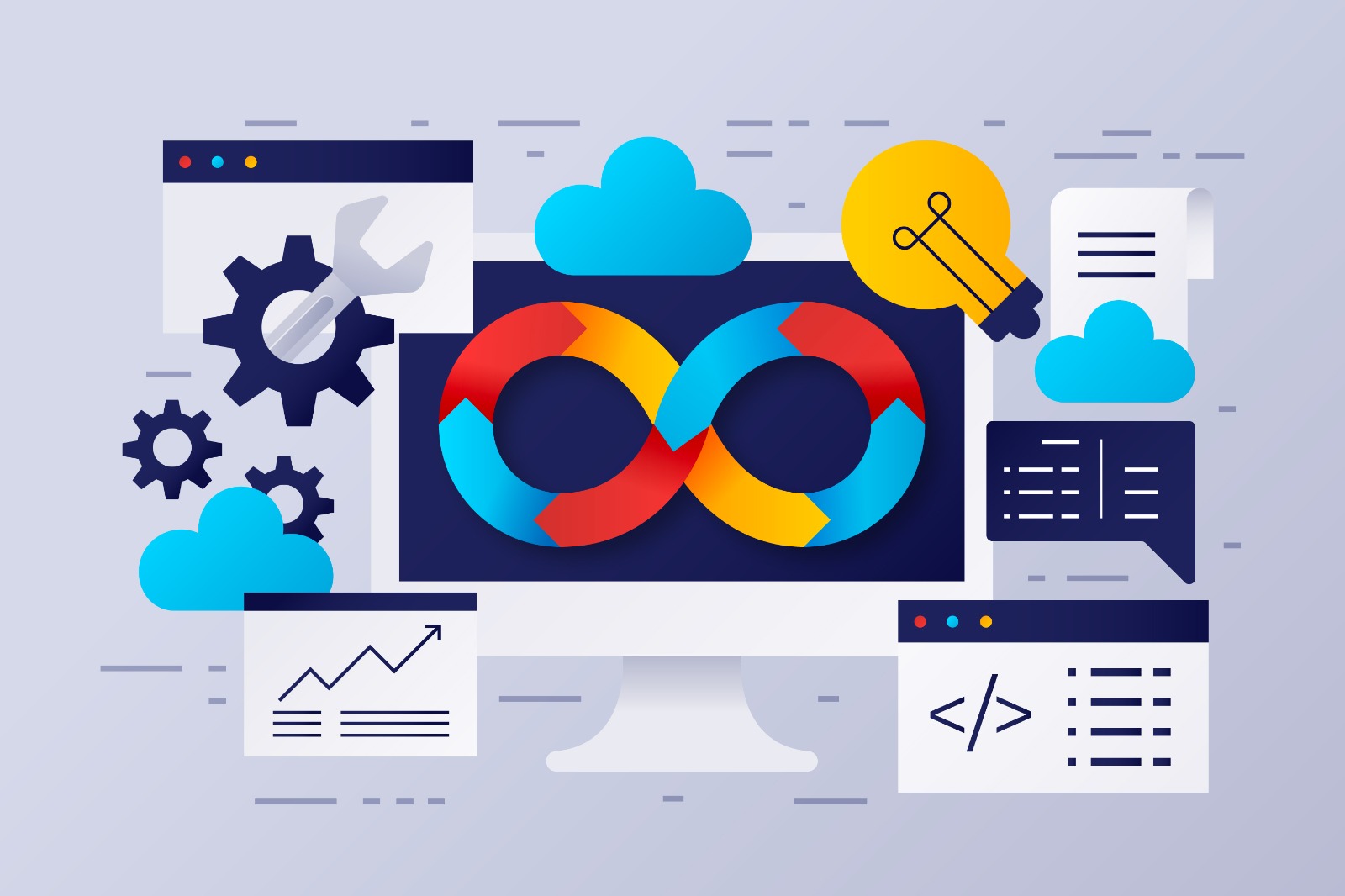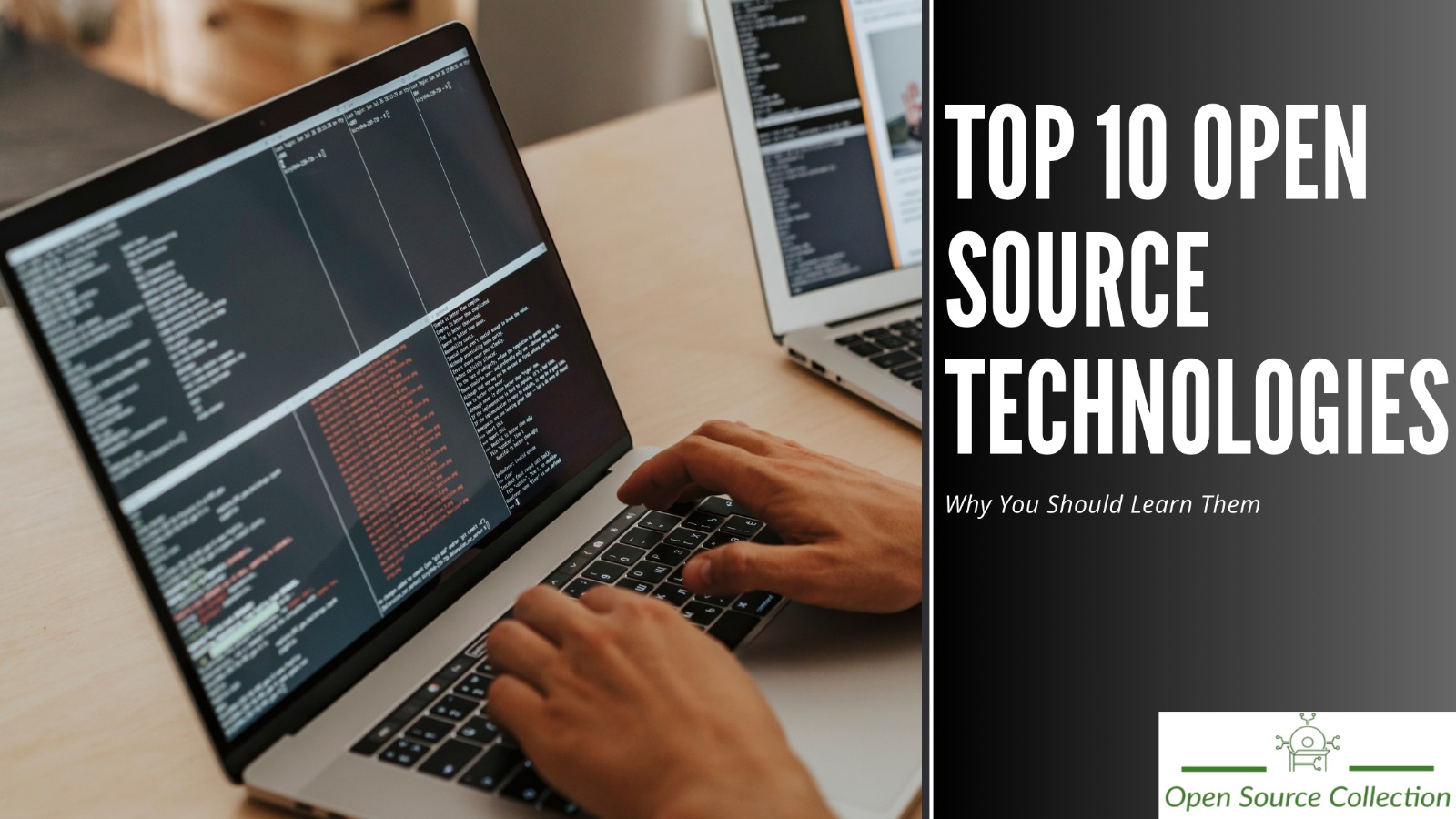You know what? In recent years, a lot of people around the world have started using open-source technology. This means that developers share their computer code and learn from one another to create new things. Many different industries have started using this type of technology, and it's been around for a while. Did you know? A big group of developers works together and shares their code so everyone can try it and build on it. Now, many tech companies, both big ones like Google and smaller startups, use open-source technology to do their work. They might use it to improve what they're already doing or add new features based on ideas they came up with in brainstorming sessions. Here are some of the Top 10 Open Source Technologies that you must have to learn.
A Little About Open Source Technologies And Why You Should Learn Them
Open source is a type of licensing agreement that allows users to freely examine, copy, modify, and redistribute software, with full access to the underlying source code. In simple terms, open source refers to software created by a developer who commits to making the entire source code available to users. In contrast, proprietary or "closed source" software has source code that only the creator can legally copy, inspect, and modify. Top open-source technologies embrace the principles of open exchange, shared participation, transparency, and community-oriented development.

However, open-source software is not necessarily free. While the source code is freely available, the executable software may be accessible through subscription. The best open-source technologies enable users to download, modify, and distribute the software without paying license fees to the original creator.
Various types of software, such as operating systems, applications, databases, games, and programming languages, can be open source. Open source technology is accessible to both programmers and non-programmers, empowering anyone with skills to be innovators and contribute code. Open source benefits businesses and individual programmers alike. Businesses can tailor open-source software to meet their specific needs or introduce innovations not present in the source code. People around the world are using open-source software like Linux and browsers like Firefox to develop websites and applications.
10 Open Source Technologies That Enhances the Digital World

Nowadays, open-source technologies create advanced software that doesn't cost anything, helping businesses save on IT expenses. Here's a list of some of the best and most advanced open-source technologies to learn for things like making software, working in the cloud, handling development operations, diving into machine learning, and more.
Machine Learning:
Machine learning is a new way that businesses are using technology to do their work better. It means that computers can learn from information without someone telling them exactly what to do. This is helpful for things like making marketing better, figuring out what customers might do, and making different tasks more efficient. Even though it might seem like only big businesses can use machine learning, that's not true. Even small businesses can use it if they team up with a company that knows a lot about machine learning.
TensorFlow
TensorFlow is an open-source machine learning framework developed and maintained by the Google Brain team. It was designed to provide a flexible and efficient platform for building and training various machine-learning models. TensorFlow gained popularity for its strong support for deep learning applications. It provides tools and abstractions to build and train deep neural networks efficiently. This includes high-level APIs like Keras, which simplifies the process of defining and training neural networks.
Progressive Web Apps:
Progressive web apps are changing how businesses work. They combine the convenience of a mobile app with the functions of a website. While web apps have been around for a while, they've evolved beyond simple desktop sites. Nowadays, there's a whole range of web apps designed for use on smartphones and tablets. With the emergence of progressive web apps, this world is expanding even more. Get open-source web applications at OpenSourceCollection for free and start building your career in the open-source industry.
Langchain
LangChain is a tool that helps make applications using large language models (LLMs). It works with popular programming languages like Python and Javascript. LangChain makes it easier to create applications that use LLMs, such as chatbots and virtual agents. This tool acts like a central hub for different LLMs. It provides a convenient way to build applications and connect them to external data and other software processes. In simpler terms, LangChain makes it easier for developers to use large language models in their applications.
Cybersecurity:
Keeping your business safe from cyber threats is crucial, no matter its size. A data breach can be really harmful, causing financial losses, loss of customers, and harm to your company’s reputation. To protect your business from cyberattacks, you should take certain steps. These include using security software, creating strong passwords, and teaching employees about the best cybersecurity practices. By doing these things, you can help ensure that your business stays safe from cybercrime.
PostgreSQL:
PostgreSQL, often referred to as "Postgres," is a robust and feature-rich open-source relational database management system (RDBMS) that has gained popularity for its capabilities and extensibility. PostgreSQL follows the relational database model, where data is organized into tables with rows and columns. It supports ACID (Atomicity, Consistency, Isolation, Durability) properties, ensuring data integrity and reliability.
GIMP:
GIMP is a widely used and well-maintained open-source photo editing tool. It provides features like editing images, using filters and effects and being flexible, similar to some expensive photo editing tools. The best part is, it's entirely free. With GIMP, you can work with layers, filters, enhance photos automatically, and create new graphic design elements easily. It works on different operating systems like Windows, Mac, and Linux, and you can customize its interface. GIMP also lets you download extra features, called plug-ins, made by the GIMP community. Many photographers, graphic designers, and illustrators prefer using GIMP as their go-to photo editor.
Linux:
Linux is a highly sought-after open-source operating system that's widely used. It's commonly found on desktop computers and Android devices, and the best part is, it doesn't cost anything. Linux stands out for its flexibility – you can customize it according to your needs. People love Linux for its easy-to-use interface, strong security features, and great support from its community.
OpenSource languages and frameworks:
To become an expert in the open source industry you must have a good command of open source friendly languages and frameworks. These technologies may include languages like PHP, python, javascript and frameworks such as Laravel, CodeIgniter, and Django. You know what? open-source scripting language, meaning it's freely available for creating dynamic and interactive web pages and various digital platforms. Some powerful websites like Slack and Spotify use these languages to operate.
Blockchain:
Blockchain is like a distributed database that ensures secure, transparent, and unchangeable transactions. Its applications are vast, making it an appealing technology for businesses of all sizes. In simpler terms, blockchain is a digital ledger that records all cryptocurrency transactions. It keeps growing as new sets of recordings, called blocks, are added. Each block includes a cryptographic hash of the previous block, a timestamp, and transaction data. For cryptocurrencies like Bitcoin, blockchain helps verify legitimate transactions and prevent attempts to spend the same coins in multiple places.
Final Thoughts- Building a Career in Open Source Technologies:
To start a career in open-source technologies, consider exploring opportunities in the Open Source Services market, which covers services like consultation, implementation, support, management, maintenance, and training. As open source becomes increasingly important in networking, databases, and security, numerous job prospects emerge in this field.
If you're a developer seeking to enhance your skills through collaborative efforts, consider pursuing a career in open source. Joining an open-source community not only allows you to master new skills but also expands your professional network and boosts your resume. To kick-start your career in open-source technologies, consider enrolling in certification courses focused on free and open-source software. For instance, you can learn how to use PHP XML on the Linux platform to develop, test, and deploy open-source applications.
For web development skills, you can opt for a Post Graduate Program in Full Stack Web Development. This program is designed to help you acquire the necessary skills and become job-ready in a short period.
FAQs
Yes, learning Linux is considered important as it is a widely used and influential open-source operating system in the tech industry.
Mastering Python can be beneficial by providing versatile skills for various applications, easing the learning curve, increasing employability, and offering opportunities in fields like data science, machine learning, web development, and automation.
-
Cost-Effective: Open source is often free, reducing software costs significantly.
-
Customization: Users can modify open-source software to suit their specific needs.
-
Community Support: Open source has a large community that provides support, updates, and improvements.
-
Transparency: Users can access and review the source code, ensuring transparency and security.
-
Innovation: Collaboration in open source fosters innovation and rapid development.
Open-source technology refers to software whose source code is freely available for anyone to view, use, modify, and distribute. An example is the Linux operating system, where the source code is open for public collaboration and improvement.
One of the most famous examples of open-source software is the Linux operating system.

